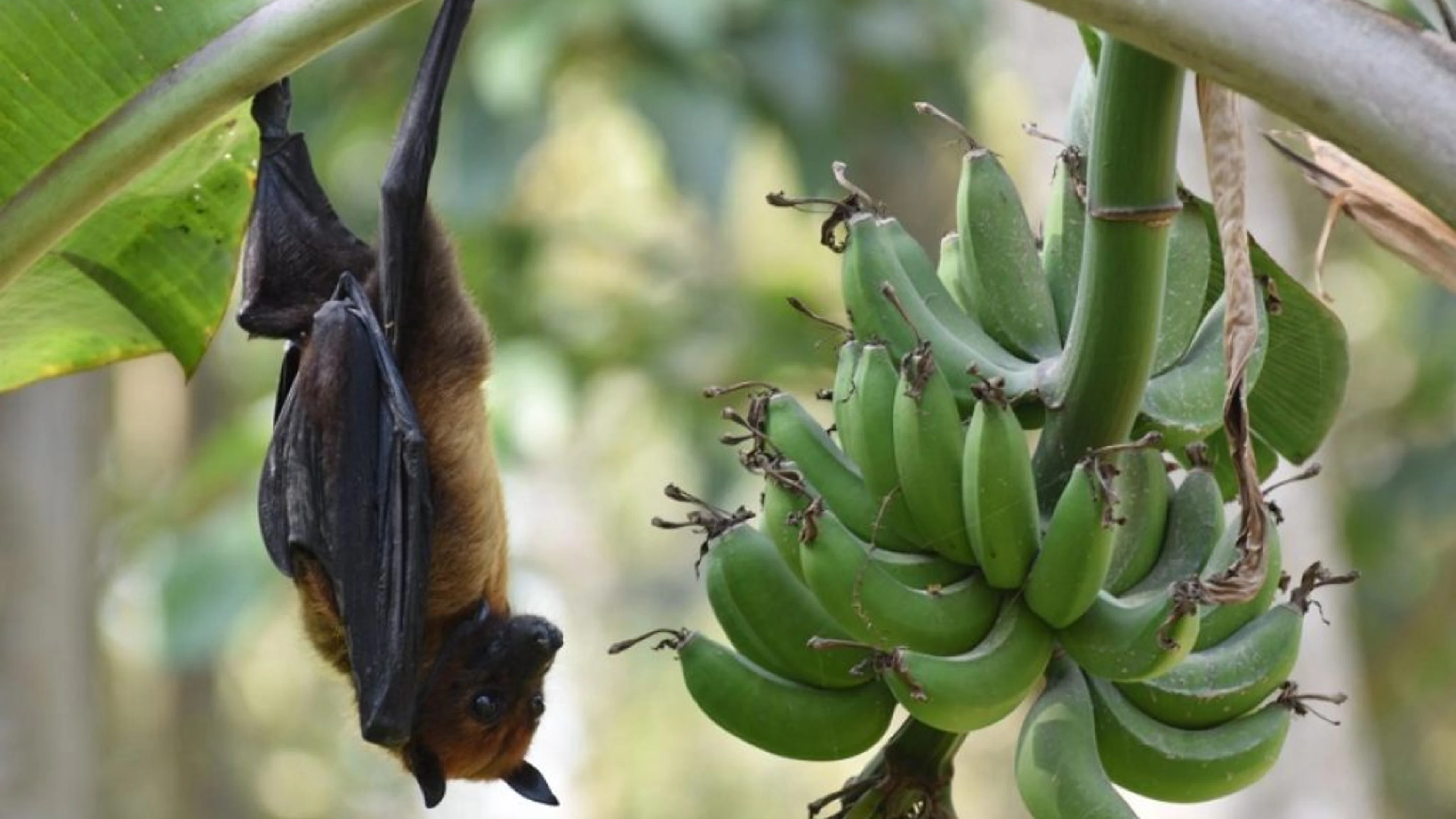CEPI partners with the Institute of Epidemiology, Disease Control and Research, (IEDCR), Government of Bangladesh, the International Centre for Diarrhoeal Disease Research, Bangladesh (Icddr,b) and the Universiti Malaya, Malaysia to significantly enhance the world's limited epidemiological knowledge of Nipah strain diversity.
CEPI invests up to US$ 2.1 million to fundamentally expand scientific understanding of the Nipah virus in affected countries and associated epidemiology in humans to ensure vaccine development efforts are suitably addressing any strain variation.
Nipah virus is one of the deadliest infections known to infect humans, however no vaccines are currently licensed for use.
--
19 June 2023, OSLO, Norway, DHAKA, Bangladesh, KUALA LUMPUR, Malaysia: At a meeting of Nipah virus experts [1] held today in Kuala Lumpur, Malaysia, CEPI — the Coalition for Epidemic Preparedness Innovations — announced investments of up to US$2.1 million in partnerships with the Bangladeshi institutions IEDCR and Icddr,b, and Malaysia's Universiti Malaya which aim to enhance the world's limited understanding of the diversity of Nipah virus strains in endemic countries, thereby supporting the development of vaccines against the deadly virus.
Through this project, existing samples from individuals who have had a Nipah virus infection in the past will be sequenced and made publicly available in genomic databases. Retrospective analyses of the data associated with Nipah virus from existing sequences will be produced and made available through peer-reviewed publications. The project also aims to prospectively sequence Nipah samples from new clinical cases, and collect and analyze epidemiological data in these two affected countries.
This much-needed new information about the Nipah virus will be invaluable to researchers and developers working on vaccines against the disease. The vast majority of experimental Nipah virus research in the past twenty years has been performed with a single isolate obtained from a patient during the Nipah virus outbreak in Malaysia in 1998-99. More recent work has expanded to include an isolate from a patient in Bangladesh. However, this still means that all experimental knowledge on Nipah virus has been derived from work with only two virus strains, limiting inferences and interpretations about the impact of strain variation on pathogenicity, virus shedding, transmission, and efficacy of countermeasures.
The regulatory approval process for any Nipah vaccine candidate will rely heavily on laboratory research because a Randomised Controlled Trial to assess vaccine efficacy is unlikely to be feasible [2], so there is a need to characterize the challenge strains used in experimental Nipah virus research and compare them against any circulating strains in humans. Likewise, as new evidence emerges from sequencing activities, we must revisit existing data to fully characterize the potential impact of strain diversity on Nipah's clinical spectrum in humans — for example, whether and how differences between strains might translate into differences in human-to-human transmission rates, pathology, morbidity, and mortality.
Dr Melanie Saville, Executive Director of Vaccine Research & Development at CEPI, said: "These new collaborations with the icddr,b, IEDCR, and Universiti Malaya will generate much-needed new information about the deadly Nipah virus. With no vaccines or specific therapeutics approved for human use, CEPI is leading efforts to protect the world against Nipah, including funding the first ever vaccine candidates in Phase 1 studies. Further clinical trials to assess the safety and immunogenicity of these vaccine candidates are set to take place over the next few years and the results of this project will ensure vaccine development efforts are suitably addressing any strain variation."
Dr Tahmeed Ahmed, Executive Director at icddr,b said, "At icddr,b, we are proud to be part of this critical partnership with CEPI and our collaborators at IEDCR, Bangladesh; Centers for Disease Control and Prevention, USA; Stanford University, and John Hopkins University, USA. With our strong research platform for Nipah virus research and decades of experience, we are well-positioned to expand our understanding of Nipah strain diversity and its outcomes. We are grateful to CEPI for its support in strengthening our knowledge of this deadly infection, and we look forward to contributing to the global efforts to develop vaccines and therapies against Nipah virus."
Prof Dr Tahmina Shirin PhD, Director of IEDCR, Bangladesh said, "This collaboration with CEPI and icddrb will help to enhance our surveillance activity and strengthen laboratory capacity for variant identification. Nipah virus infection occurs almost every year in Bangladesh since 2001 with an average of 71% case fatality. The initiative to develop vaccine and therapeutics against Nipah infection is highly recommended along with surveillance, outbreak investigation and risk factor identification. We hope this collaboration will contribute in effective vaccine development and global health security".
Professor Ir Dr Shaliza Ibrahim, Deputy Vice-Chancellor (Research & Innovation) at Universiti Malaya said: "As Malaysia's premier research university, UM is dedicated to advancing knowledge and contributing to the well-being of society. We recognize the potential threat that Nipah virus poses to public health and safety, and we are committed to supporting research efforts that can shed light on this deadly virus. In collaboration with CEPI, UM is undertaking new research to gain insights into the genetic diversity of Nipah virus, which is critical for developing effective strategies to prevent future outbreaks and to treat the disease. This collaborative research aligns with UM's research tagline of Transforming Knowledge, Industries and Lives, and we are proud to play a part in advancing science and protecting public health."
The partnerships announced today build upon existing collaborations between CEPI and Universiti Malaya in Malaysia and icddr,b in Bangladesh to study Nipah survivors in these two countries.
Earlier this year, Bangladesh experienced an outbreak of Nipah virus, recording 14 cases and 10 deaths spread across four districts of the country. All cases have been linked to drinking raw date palm juice, which can be contaminated by saliva or urine from bats that carry the virus.
[1] Nipah Portfolio and Technical Program Meeting. See Notes to Editors.
[2] https://www.sciencedirect.com/science/article/abs/pii/S0264410X21010471
--ENDS--
Notes to Editors
CEPI's work on Nipah
CEPI has to date invested up to US $100 million in four promising Nipah vaccine candidates, being developed by teams across academia and industry: Auro Vaccines and PATH, Public Health Vaccines, the University of Tokyo, and the University of Oxford. Programs are progressing, with vaccine candidates developed by Auro Vaccines and PATH and Public Health Vaccines being the first in the world to reach in-human (Phase I) clinical trials.
CEPI recently opened a Call for Proposals to develop a monoclonal antibody (mAb) to protect against Nipah. A Nipah mAb would serve as a bridge during an outbreak, providing immediate passive protection prior to the onset of vaccine-induced immunity which can take several weeks.
Findings generated through this project will be shared through open-access publications and via scientific meetings with vaccine developers (including both CEPI-funded and non-CEPI-funded developers) to ensure all can benefit from the research.
Further information on CEPI's work on Nipah is available here. CEPI's landscape review of current Nipah medical countermeasures, published in January 2022, is available to read in The Lancet Infectious Diseases.
About Nipah virus
- Nipah virus is one of the deadliest pathogens known to infect humans. A member of the Paramyxovirus family, the virus is spread to people by interaction with Pteropus bats (flying foxes)—the natural hosts of the virus—as well as infected pigs, infected humans, or through contaminated food like bat-bitten fruit or date palm sap. It causes rapidly progressive illness, affecting the respiratory system and the central nervous system, and has a case fatality riskestimated at 40 to 75%.
Since its identification in 1998/1999 in Malaysia and Singapore, the virus has gone on to result in sporadic and unpredictable outbreaks in Bangladesh, India, and the Philippines — a region spanning thousands of kilometers. During the first months of 2023, there has been an outbreak in Bangladesh. There are 14 confirmed cases, with 10 deaths. This gives a case fatality risk of 71.4%.
The cases have been spread over 4 geographical districts, but there is no apparent human-to-human transmission. All cases are reported to be linked to the drinking of raw date palm juice, which can carry contamination from the urine or saliva of fruit bats that carry the virus and feed on the date juice.
Pteropus bats are found across regions of Africa, South Asia, and Oceania that are home to more than two billion people, there is concern that outbreaks could affect further areas in the future.
There is also concern that the world should be prepared for a future virus within the Paramyxovirus family that could have the fatality risk of Nipah virus combined with the transmissibility of measles, another member of the viral family.
About CEPI
CEPI is an innovative partnership between public, private, philanthropic, and civil organizations, launched at Davos in 2017, to develop vaccines against future epidemics. Prior to COVID-19, CEPI's work focused on developing vaccines against the Ebola Virus Disease, Lassa virus, Middle East Respiratory Syndrome coronavirus, Nipah virus, Rift Valley Fever virus, and Chikungunya virus. It has over 20 vaccine candidates against these pathogens in development. CEPI has also invested in new platform technologies for rapid vaccine development against unknown pathogens (Disease X).
During the current pandemic, CEPI initiated multiple programs to develop vaccines against SARS-CoV-2 and its variants with a focus on speed, scale, and access. These programs leverage the rapid response platforms developed by CEPI's partners prior to the emergence of COVID-19, as well as new collaborations. The aim is to advance clinical development of a diverse portfolio of safe and effective COVID-19 candidates and to enable fair allocation of these vaccines worldwide through COVAX.
CEPI's 5-year plan lays out a $3.5 billion roadmap to compress vaccine development timelines to 100 days, develop a broadly protective vaccine against COVID-19 and other Betacoronaviruses, and create a "library" of vaccine candidates for use against known and unknown pathogens. The plan is available at www.endpandemics.cepi.net.
Follow our news page for the latest updates. Follow us via @CEPIvaccines, @DrRHatchett, and on LinkedIn.
About icddr,b
icddr,b formerly known as International Centre for Diarrhoeal Disease Research, Bangladesh is an international public health research institution based in Bangladesh. Established in 1960, icddr,b has been at the forefront of discovering low-cost solutions to key public health challenges facing people in poverty and provides robust evidence of their effectiveness at a large scale. Instrumental in the development of oral rehydration therapy (ORT), icddr,b's research in this area has been credited with saving more than 70 million lives worldwide. From an early focus on cholera and diarrhoeal disease, the scope has expanded to encompass most of the global public health challenges. Find out more at www.icddrb.org or follow us on Twitter @icddr_b
About IEDCR
Institute of Epidemiology, Disease Control and Research (IEDCR) is a national public health institute under Ministry of Health and Family Welfare (MOHFW) of the Government of Bangladesh (http://www.iedcr.gov.bd/). It is the mandated institute for disease surveillance, outbreak investigation and response, public health work force development and research on behalf of Ministry of Health, Bangladesh. IEDCR is also fostering collaboration with other national and internation funding agencies and universities. It is the national IHR focal institute, National Influenza Centre (NIC), Referance laboratory for National Antimicrobial Resistance (AMR) surveillance, and Influenza and SARS CoV-2 surveillance. It is also the designated laboratory for Nipah and Japanese Encephalitis surveillance in Bangladesh. IEDCR is designated as Global Disease Detection centre (GDD) by the US CDC and a member of The International Association of National Public Health Institutes. IEDCR conducts the Field Epidemiology Training Program, Bangladesh (FETP,B) and houses One Health Secretariat, Bangladesh.
About UM
UM is the country's first university. Following the passing of the University of Malaya Act in 1961 by Parliament, UM was recognised as a public university. UM, as it is known today, was officially made a public university in the Federation of Malaya on 1 January 1962. UM is supported by two academies, thirteen faculties, three institutes and three academic centres that encompass medicine, science, technology, social sciences and humanities. The university also houses Malaysia's first and biggest teaching hospital — UMMC. In addition, the Research Cluster had been formed to drive further breakthroughs in knowledge. The emphasis on research is strengthened by the presence of centres of excellence at several of its learning centres. UM continues to consolidate and solidify its position in both the national and international arenas. It stands among the world's top universities, ranking 70th in the Quacquarelli Symonds (QS) World University Rankings 2023, retaining its place in the global top-100 universities for a fourth consecutive year.
About the Nipah Portfolio and Technical Program Meeting
The Nipah Portfolio and Technical Program Meeting, organised by CEPI, takes place in Kuala Lumpur, Malaysia on the 19th and 20th June 2023. The meeting convenes experts across academia, government representatives and industry to discuss their roles in preparing for and preventing the re-emergence of Nipah virus outbreaks. Broadly the meeting aims to understand and raise awareness of current research efforts into Nipah virus disease, including vaccines, diagnostics, assays and epidemiology and the challenges and opportunities within that.
Media Contacts
CEPI
Email: [email protected]
Tel: +44 7387 055214
icddr,b
AKM Tariful Islam Khan
Senior Manager, Communications
Email: [email protected]
Tel: +88 017555 88128
IEDCR
Prof Dr Tahmina Shirin PhD
Director IEDCR
Email: [email protected]
Tel: +8801711626151
UM
Mastura Yusoff
Media Relations Officer
Email : [email protected]
Tel : +6013-3773207



.webp)